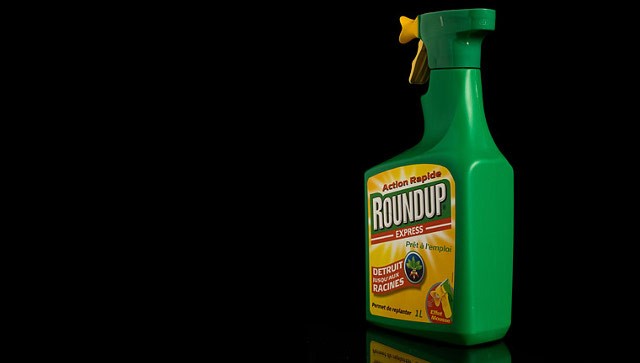The French Agency for Food, Environmental and Occupational Health & Safety (ANSES) published a review last Friday that has suggested that the World’s most used herbicide, glyphosate, could be a category 2 carcinogen, meaning that carcinogenicity in humans is suspected.

The classification of glyphosate should be rapidly reviewed by the European Chemicals Agency, ANSES said.
ANSES is particularly concerned about a co-formulant found in glyphosate preparations, tallowamine. It will conduct an immediate reassessment of the marketing authorizations for preparations combining glyphosate and tallowamine.
Source: www.publicnow.com
ANSES Report
Following publication of the results of the assessment conducted at European level as part of the procedure to renew the approval granted to the active substance glyphosate, and the conflicting results of the International Agency for Research on Cancer (IARC) that concluded that this substance should be classified as ‘probably carcinogenic to humans’, ANSES received a formal request to investigate the hazards posed by glyphosate to human health.
In the Opinion it is publishing today, the Agency notes that in light of the limited level of evidence, it is not possible to propose a classification in Category 1A or 1B (respectively, known or presumed to be carcinogenic to humans, CLP Regulation), but that it could arguably be classified in Category 2 (substances suspected of being carcinogenic to humans, CLP). ANSES therefore believes that the classification of glyphosate should be rapidly reviewed by the European Chemicals Agency (ECHA).
Besides the active substance, the co-formulants found in glyphosate preparations, tallowamine in particular, raise concerns. The Agency is therefore launching an assessment of the risks associated with the co-formulants found in all plant protection preparations, with priority given to glyphosate-based formulations. The Agency will also conduct an immediate reassessment of the marketing authorisations for preparations combining glyphosate and tallowamine.
Glyphosate is an active substance authorised in Europe and used very widely in France as a herbicide, both by professionals (annual tonnage varying between 5157 tonnes and a little over 7421 tonnes from 2008 to 2014) and by amateur gardeners (annual tonnage varying between 1264 tonnes and 2055 tonnes from 2008 to 2014).
It is currently the subject of a European-level procedure to renew its ten-year approval as an active plant protection substance. In this framework, EFSA is coordinating the assessment of the substance, with Germany (BfR) as the rapporteur Member State. The conclusions of the BfR’s expert assessment, which will serve as the basis for the vote by the Member States on whether or not to re-approve the active substance, recommend establishing a threshold for acute toxicity, which will toughen the assessment criteria for glyphosate. They also consider that the substance is unlikely to pose a carcinogenic hazard to humans.
However, on 10 March 2015, the International Agency for Research on Cancer (IARC), part of the World Health Organization, published a report concluding that glyphosate should now be classified as ‘probably carcinogenic to humans’ (IARC Group 2A).
In this context, ANSES received a formal request from the Ministries of Consumer Affairs, Health, Labour, Ecology and Agriculture, as well as from the French consumer associations UFC-Que Choisir and CLCV, to assess the IARC and BfR conclusions as regards the carcinogenic properties of the substance. It was important that the Agency’s analysis should enable the French authorities to propose appropriate measures at European level when considering the draft decision to renew approval.
The Agency’s opinion
ANSES entrusted examination of this request to a group of experts specialising in toxicology, carcinogenesis, mutagenesis and epidemiology. Given the time constraints, the Working Group’s analysis relied exclusively on the European and IARC assessment reports and not on raw data.
The analysis was conducted in an attempt to explain the diverging conclusions of the BfR and EFSA with respect to those of the IARC. It found that these differences can be explained by the selection criteria for the studies used and the methodology for establishing the final level of evidence.
In conclusion, the expert group’s analysis indicates that:
- the level of evidence of carcinogenicity in animals and humans is considered relatively limited and cannot be used to propose a classification in Category 1A or 1B (respectively, known or presumed to be carcinogenic to humans) in application of the criteria of Regulation(EC) No 1272/2008 (CLP);
- in view of the limited level of evidence, the substance could arguably be classified in Category 2 (substances suspected of being carcinogenic to humans, CLP), without the Agency being in a position to take a decision in the absence of a detailed analysis of all the studies.
In light of these results, the Agency believes that the classification of glyphosate should be rapidly reviewed by the European Chemicals Agency (ECHA).
In addition, besides the active substance and given the exposure to preparations and the concerns raised about the co-formulants, the Agency is continuing its work through the establishment of a Working Group on the risks associated with the co-formulants found in all plant protection preparations, in particular for amateur use. The work will focus on glyphosate-based formulations as a matter of priority.
Furthermore, given the recent issues raised by EFSA concerning tallowamine, the Agency will conduct an immediate reassessment of the marketing authorisations for preparations combining glyphosate and tallowamine.



















WHO has also reported the carcinogenic potential of glyphosate.